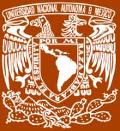|
Boletín de la Sociedad Geológica Mexicana Volumen 76, núm. 2, A170424, 2024 http://dx.doi.org/10.18268/BSGM2024v76n2a170424
|
 |
Espectrometría infrarroja y datación arqueomagnética de un horno de cal en la periferia de Dzibilchaltún, Mérida, Yucatán
Infrared spectrometry and archaeomagnetic dating from limekiln in the Dzibilchaltún outskirts, Mérida, Yucatán
Soledad Ortiz-Ruiz1, Rafael García-Ruiz2,*, Avto Goguitchaichvili 2, Oscar G. de Lucio 3,
Jaziel Aldair Murguía Salazar 2, Eva Vernet Tarragó 4, Ángel Góngora Salas 5,
Francisco Bautista6, Juan Julio Morales-Contreras 2
1 Instituto de Investigaciones Antropológicas, Universidad Nacional Autónoma de México, Circuito exterior, Ciudad Universitaria, 04510, Ciudad de México, México
2 Servicio Arqueomagnético Nacional, Instituto de Geofísica, Unidad Michoacán, Universidad Nacional, Autónoma de México, Campus Morelia, Antigua Carretera a Pátzcuaro No. 8701, Col. Ex-Hacienda de San José de La Huerta, 58190, Morelia, Michoacán.
3 Laboratorio Nacional de Ciencias para la Investigación y Conservación del Patrimonio Cultural (LANCIC), Universidad Nacional Autónoma de México, 04510 Ciudad de México, México.
4 Laboratorio Paleomagnético, Universidad de Burgos, Hospital del Rey s/n - 09001 Burgos, España.
5 Centro INAH-Yucatán, Instituto Nacional de Antropología e Historia, calle 10 310A, Col. Gonzalo Guerrero, Mérida, Yucatán, 97119.
6 Laboratorio Universitario de Geofísica Ambiental, Centro de Investigaciones en Geografía Ambiental, Universidad Nacional Autónoma de México, Campus Morelia, Michoacán, México
* Autor para correspondencia: (R. García Ruiz) This email address is being protected from spambots. You need JavaScript enabled to view it.
Cómo citar este artículo:
Ortiz-Ruiz, S., García-Ruiz, R., Goguitchaichvili, A., de Lucio, O.G., Murguía Salazar, A., Vernet Tarragó, E., Góngora Salas, Á., Bautista-Zuñiga, F., Morales-Contreras, J.J., 2024, Espectrometría infrarroja y datación arqueomagnética de un horno de cal en la periferia de Dzibilchaltún, Mérida, Yucatán: Boletín de la Sociedad Geológica Mexicana, 76 (2), A170424. http://dx.doi.org/10.18268/BSGM2024v76n2a170424
Manuscrito recibido: 19 de Octubre de 2023; manuscrito corregido: 2 de Abril de 2024; manuscrito aceptado: 16 de Abril de 2024.
ABSTRACT
In recent years, the exploration of lime kilns in the Yucatan Peninsula has been a recurring part of archaeological work. During the archaeological rescue at Chaactun locality, a kiln was found that presented abundant concretion of a white material presumably the lime. During the excavations, archaeometric and archaeomagnetic samplings were carried out in order to corroborate the archaeological findings. The combined investigation allowed us to study this structure from different perspective and to define the moment of lime burning, the moment of abandonment and its impact during the reuse of the property as a cattle ranch. These results indicate the importance of carrying out systematic samplings in order to integrate the results into the theorical and methodological framework of the use of combustion structures in the Mayan area.
Keywords: Lime kiln, Infrared Spectrometry, Archaeomagnetism, Maya area.

